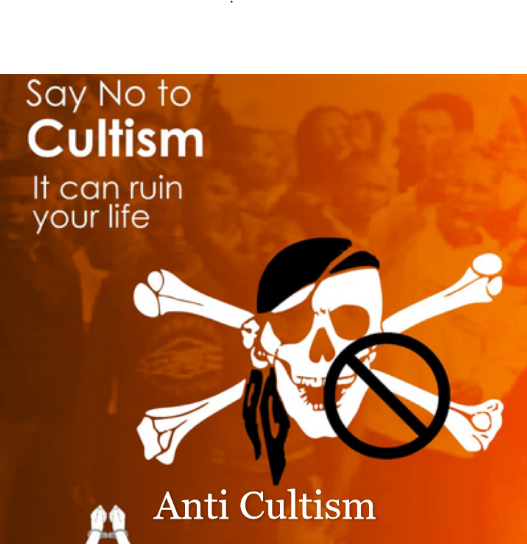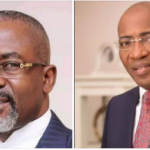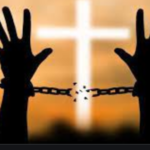JULY 30 will likely remain historic. It marked the first time a prominent private citizen, Udom Inoyo, publicly give fillip to Governor Udom Emmanuel’s war against criminal cults in Akwa Ibom State. The state government’s definite stance against cults came to the force with legal spine in March 2018 through an Executive Order signed to that effect by the governor.
Before now, except by the governor and the immediate past Attorney General, Uwemedimo Nwoko, a Senior Advocate of Nigeria (SAN), public condemnations of cults, especially among persons well known in the public, were pronounced with caution or, at best, with glibness. Maybe, it is because cultism has been in vogue in the state for years, opening ways for many where and when there seemed to be no way, catapulting many from obscurity to per-eminence and serving as symbols for recognition, patronage and promotion in the political arena.
Owing to the apparent accruements from cultism in Akwa Ibom, many across the state have signed up to at least one criminal cult group. As a result, talking about, especially against, cultism is akin to the proverbial throwing of stones into a market place, which has the consequence of possibly hitting one’s loved ones.
Though Emmanuel has maintained his stance of non-alignment with cults and remain avowal in condemning perceived havoc caused in the past by the activities of cultists, the consensus opinion in the state is that the remnants of the past is yet to be completely removed out of the system. Not a few persons hold the view that a number of persons that served as instruments of menace against the society through the inglorious activities of cults in the past are still calling the shots in certain strategic positions, from the sub-national government in Akwa Ibom to the national government in Abuja.
So, while the fear for cultism could serve as a yardstick to measuring one’s socio-political wisdom, the fearlessness in distancing oneself from cultism or reproving it could also be an instrument to determining the height of one’s independence and ability to dare what is dreaded.
The foregoing, in addition to his investiture of the ‘Ray Ekpu Award for Investigative Journalism’, may account for Udom Inoyo, the immediate-past Vice Chairman of ExxonMobil subsidiaries companies in Nigeria, being the Man In News in Akwa Ibom community since that Friday that he declared to join forces with the government and relevant civil society groups to disentangle the state from the grips of criminal cult groups.
Inoyo was not merely adding his voice against cultism he added a new vista that could help reinvent societal values. He opined that discussion on the menace of cultism should not be confined to narrow prism of politics and that questions tracing to its causative agents should be asked and provided with correct answers with a view to bringing the negative manifestations of cultism to the doorsteps of everyone.
His words: “It is more important to ask questions like: What are we not getting right that is driving these children into cultism? Are we providing adequate education? Are we providing adequate employment opportunities? Are we engaging these youths to avoid their minds becoming the devil’s workshop?
“Are we doing enough sensitisation and attitudinal reorientation? Are the parents, schools, communities, government at all levels doing enough?” He added that the people “should be more concerned in addressing the problems from the root.”
Either in sync with the Udom Emmanuel mantra of “Dakkada (Arise)” or Muhammadu Buhari’s slogan of “change begins with me”, or his personal philosophy of no-problem-defies-proffering-solutions, or all of the above, Inoyo has since that Friday thrown his hat into the ring to wrestle the threatening monster of cultism in the Akwa Ibom society.
While calling for synergy of actions from all stakeholders to explore ways of addressing the root causes of social vices, he noted that if not attended to, the vices may consume everyone in the nearest future. He declared his readiness to partner with Nigeria Union of Journalists (NUJ), Civil Society Organisations (CSO), Community Based Organisations (CBO), Non-Governmental Organisations (NGO) and other groups to initiate a conversion aimed at addressing the issues.
With somewhat attitude of “we can’t be in the Hades alone”, one unhealthy dimension that has crept into the narrative on cultism in Akwa Ibom has been the roping in of almost all at top station of life in the state as belonging to one cult group or another. Even the governor, Inoyo and some renowned clerics, among others, have not escaped such unsubstantiated accusation mooted in certain quarters in the state.
In fact, insinuations have been made in some axis in the state to include some well known associations that have no link with criminality and which were not listed among the criminal cult groups by the executive order.
For instance, the National Association of Seadogs or Pyrates Confraternity, which was founded in 1952 by a group of seven friends, including renowned Nobel laureate Wole Soyinka, to promote human rights and social justice in Nigeria, has been implied to create mischief. It was, perhaps, on the strength of that that a reporter was prompted to ask Inoyo whether he is a member of the Pyrates Confraternity, shortly after he delivered a talk on “Your Pen, Your Future” at a congress of Akwa Ibom Council of NUJ in Uyo. Inoyo, reportedly responded with strict and categorical emphasis by saying, “I am not a member”.
Meanwhile, following Inoyo’s interface with newsmen on the issue, another implication has cropped up in the minds of political pundits, as to whether such question would form the template question of ascertaining membership status of every other public spirited person in either lawful or unlawful associations.
If such questions are posed to those alleged to be in top echelon of outlawed groups such as Vikings, Black Axe, KKK, Buccaneers, Mafia, Luttox (Junior Black Axe), Debam, Icelanders, Red Skins, Akwa Marines and Utoto Groups (419), could such interviewee own up or deny membership of a group that might have been instrumental to his or her rise in the socio-political scheme of things in the state? Could those accused of being members sincerely join forces in fighting the social scourge?
Other groups listed in the law are those found in secondary and primary schools, such as the Luttox, The Red Skins, St. Stephens, Dewell, Sept 11 Group, Secret Sons of Satan, King Cobra, J.V (Junior Vikings), Bats, Predators, Black Ladies, Black Cross, Scavengers, Skylolo, Sons of Nights, Blood Brotherhood, Junior Buccaneers, White Angels and Musket, among others.
The law is titled, “Cultism and other Violent Behaviour Prohibition Order”. According to Emmanuel, it is targeted at reinvigorating the existing Criminal Code Law, Cap 38 Laws of Akwa Ibom State dated 2000.
In justifying the governor’s move behind the law, Nwoko, the then chief law officer of the state had went down memory lane in the fight against cultism in the state and brought to the fore the exceptionalism in that of 2018. He said, “In 2003, the administration of Victor Attah enacted a law to prohibit cult groups and other unlawful and violence behavior. There is also a provision in the criminal code, which prohibits existence of secret societies.
“However, section 70 of the criminal code specifically requires the governor to, by order, list out cult groups and criminal societies and to prohibit them. There was no specific prohibition order prohibiting these cult groups by name. So this action is to give effect to the prohibition of all the cult groups from operating in any part of the state”.
There is also allegation that some politicians are financiers of the criminal cult groups while others use the banned groups as political robots. This is even as new ones are said to have been formed to technically beat the law which listed scores of such groups.
In a telephone conversation with the Akwa Ibom State Attorney General and Commissioner for Justice, Uko Udom (SAN) he admitted to the challenge of knowing all the proscribed cult groups at the moment “because everyday new groups (criminal cult groups) keep springing up.”
It was because of the emergence of cult groups with new names that the government in 2020 listed additional names to make up about 65. With rising profile of such groups under new auspices, may be, the Akwa Ibom State government would need to deplore ejusdem generis, a Latin phrase, which is one of the principles of legal interpretation, so that every criminal cult groups related in activities to those named in the law could be accommodated for ease of enforcement.
The war against cultism may not be a tea party since, like anything antagonising humanity, those who reap from such groups would likely fight back with vehemence. The battle ground and time would likely be in activities culminating to 2023 general elections.
The march towards ridding Akwa Ibom of cultism also has potentials of shaping Emmanuel’s governorship legacy and determining how the works of the current government would bear fruits beyond its era. It is expected to be a legacy if it is successfully enforced at present and sustained beyond the current administration.




